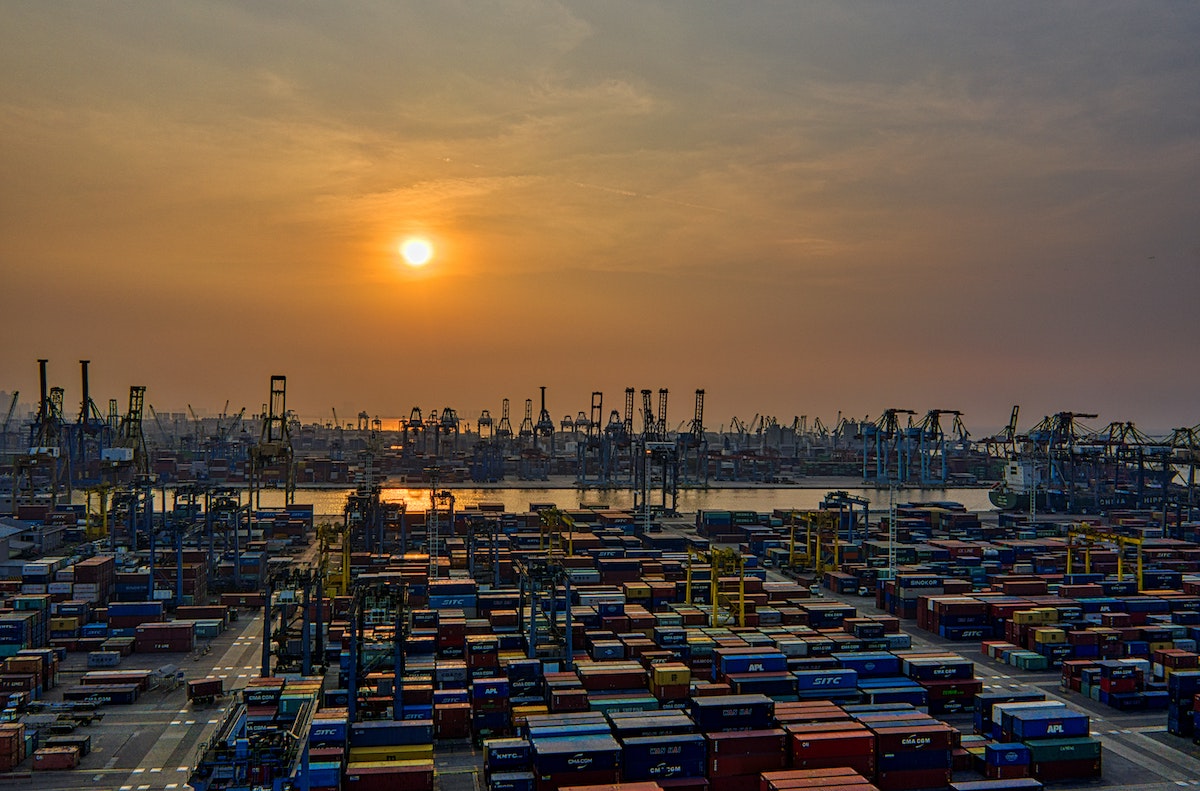5 Ways the Shipping Industry is Changing

The shipping industry continues to operate efficiently but has been reluctant to adopt innovative technologies that may disrupt its logistical systems.
The shipping industry, much like the rubbish removal industry, is currently undergoing a technological revolution that is transforming the way business is conducted. Advances in technology are revolutionizing the way goods are transported and monitored, streamlining processes, and increasing efficiency. With the growing IoT and mobile devices popularizing, this age-old industry has taken up modernization.
While the shipping industry is experiencing many changes, here are the top five that captured our interest:
The Introduction of Eco-Friendly Ships
Since 90% of what we consume gets transported by sea, there’s no doubt that the shipping industry causes a fair amount of environmental damage.
With modern customers turning towards eco-friendly solutions and introducing new regulations regarding the impact of ships, most companies are seeking eco-friendly ways to deliver overseas.
Recent innovations in the shipping industry are looking to replace fossil fuels with sustainable energy like wind. Wind-powered vessels use trade winds and ocean currents to move from port to port. While they don’t travel as quickly as gas-powered ships, they’re comparatively lightweight and allow sailors to carry more freight.
Robotic Technology Will Infiltrate Every Industry
It’s no surprise that robots are infiltrating every industry in one way or another. Now, they’re entering the shipping industry.
Research institutes and companies in the transport, tech, and automobile sector are collaborating to build robots that facilitate safety, ship management, inspection, and servicing.
For instance, the U.S. Navy Research Lab collaborates with Virginia Tech to develop SAFFiR. These Shipboard Autonomous Firefighting Robots will help improve efficiency, reduce losses, and reduce errors.
Ships Will Sail Without Sailors
Given the high cost of air transportation, most traders prefer using freight ships.
The shipping industry heavily depends on freight ships; it’s no surprise companies invest in vehicles requiring lesser human assistance. That, in turn, can reduce costs and fatal errors.
In addition, autonomous ships help reduce shipping emissions and generate less pollution. According to a report by the Guardian, these ships benefit from the latest technology and digital connectivity to take autonomous actions based on preset programmatic intelligence.
These autonomous ships will include electronic sensors, telecommunications, and computing are driving manufacturers to create autonomous vehicles, including cars, trains, and ships. Companies worldwide are working hard to transform these ideas into reality.
Furthermore, automated ships have provided a technological edge to the shipping industry by improving productivity, efficiency, and carrying capacity. Since the ships will be autonomous, the fear of losing crew due to natural disasters or other factors will also reduce.
Smart Shipping Facilitated by IoT
Almost every industry has embedded the Internet of Things (IoT), which helps revolutionize how we collect data and process information. While ships have always had sensors to collect data, technological innovations allow these vehicles to send and process this information in real-time.
Therefore, this information helps streamline the shipping process and allows organizations to optimize routes, track data, and monitor equipment.
Not just this, but maritime digitalisation also impacts the delivery process. Where every ship had GPS, smart shipping now uses sensors to reduce route confusion and enable drivers to make deliveries quicker.
Blockchain Will Become More Important
The financial sector has been using blockchain technology to collect data efficiently. However, the shipping industry has also adopted blockchain technology to replace spreadsheets, individual databases, and labour-intensive log books.
The cloud-based application, such as our cutting-edge fleet management software, tracks the tens of millions of shipping containers annually transported, allowing the shipping industry to become more efficient and transparent while encouraging them to share information with other trading partners.
The effect of using digital technology in the shipping industry will reduce the delivery times because digitalisation simplifies the process of recording data spreadsheets, travel logs, and inventory into one system that cannot be altered by one party and requires approval of the other parties involved in the transaction.
Although it may sound complex because the changes are recorded chronologically, it minimizes human errors, fraud, and delays at ports while reducing the overall costs of goods.
The Bottom Line
We can easily see the combination of old-school and brand-new technology in the shipping industry. Ships meet autonomous driving; humans meet robots; delivery meets drones. It sounds incredible but also frightening and, at the same time, fascinating.
Some of these innovations have been present for quite a long time, while others are just around the corner. However, these new innovations are just the tip of the iceberg.
The shipping industry is changing, and with the speed at which it is adopting these new technologies, it would not be wrong to term this period as the rebirth of an old industry. The shipping industry takes pride in participating in a technology revolution that has completely transformed the world’s oldest industry.
